Founder success stories: Yena

Nike was not the first one to say “Just do it!”. Though the sports brand is most strongly associated with the phrase, it’s a rule successful people have lived by for years, decades and even centuries. In the past several years, some of those successful people have started promoting the motto by helping others to just drum roll... do it.
We spoke to Ash Phillips, founder of Yena, who made it his mission to help aspiring entrepreneurs do exactly that - turn their ideas into profitable businesses. Yena is an entrepreneurial accelerator platform that provides everything you need to start and grow a small business, meanwhile incorporating you within their global community of business-minded fellows alike.
About your business
What’s your ‘Elevator pitch’?
Yena is the acceleration platform for startups. We help people get access to high-quality business support, anywhere, anytime, instantly, acting as an accelerator by subscription, essentially. We also run a ton of free events all over the world - 120 a year in 16 cities, all completely free.
And where did the inspiration for your business come from?
What inspired me to start Yena, was not really understanding what to do when I had my own startup. It was the unknown unknowns. I just wanted to find other weirdos that were starting and growing companies. So I set up a meet-up in Bristol, about five people turned up and they wanted to know when the next one was when we finished. I said, "Next month..?" and we've run those meet-ups ever since!
And then, around three years into those meet-ups, we were in 4 cities. People started telling me a bunch of different things about what their challenges were. We decided to try and fix every single one of them and called it a membership. And fast forward to today, and that's what the subscription is now.
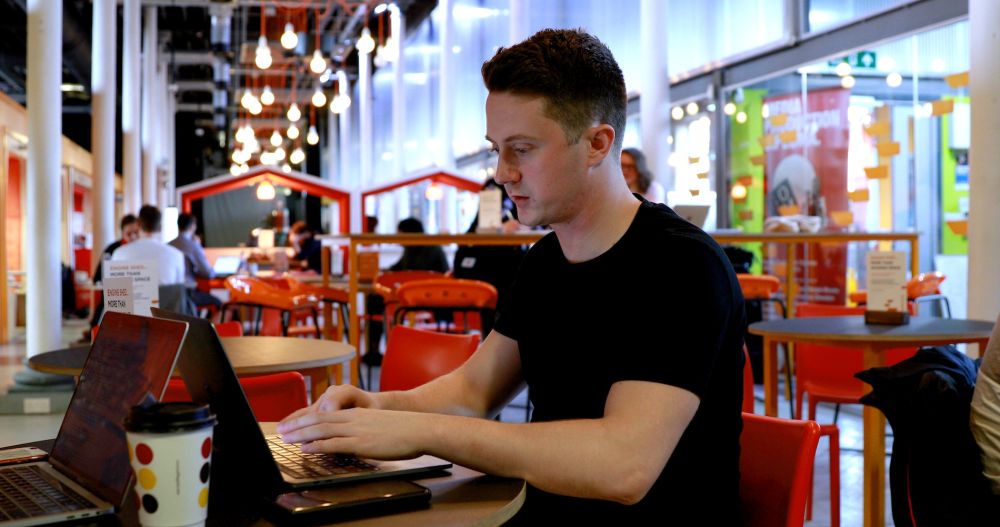
What was your ‘lightbulb’ moment when you realised you could make this a business?
I think, for us, it's been an iterative process. For other businesses I've started before, it was an idea to fit a market first, and then I had to go and find customers. With Yena, I had already found a whole community of potential customers, but didn't have a product to fit them.
This year we've really found our feet, found a proper ''product market fit’’, and over time, there were many, many "lightbulbs" if you will.
What customer problem(s) are you solving?
We deliver four things: these are the solutions to the four challenges that people have when they're starting and growing a business: loneliness, expense, the massive learning curve, and the lack of culture if you're working on your own.
So we do that by providing them with a community, a list of curated tools and resources from best-in-class companies, a rigid original content that we produce with experts on the subjects they need to know about, and an ecosystem that they can feel like they belong to.
People have the opportunity to bid for work, start businesses together, get access to conferences and books and even our member retreats, that we do on an annual basis.
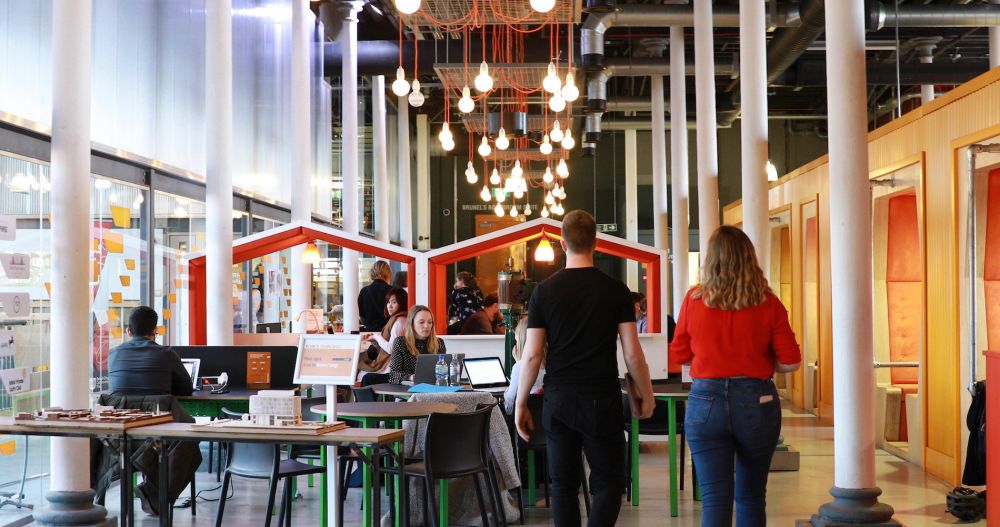
What makes you different in the market?
For us, we're very much on the mindset of “Where there's potential competition, there's a potential collaboration”. We'll always try to work with someone, even if they're exactly the same as us, which is very rare, and if not, not happening yet.
If we're looking at the competitive landscape for us, there are traditional incubators and accelerators - they are geographically confined, highly vetted, specifically working in certain verticals. We're accessible to anyone, anywhere, sector-agnostic and accessible via subscription.
The alternative to that are the online forums and communities that you can access for free and those are great, but they're not curated or well-managed. We improve upon that because we have the ability to do so at a headquartered office.
The only other competitor, really, within our space, would be private individual coaches, who are running online programs, but often they're,
we find, either under-delivering, according to the thoughts of our community, or are highly expensive - thousands of pounds a time to join them - versus our £9 a month subscription, becomes way more accessible to those people.
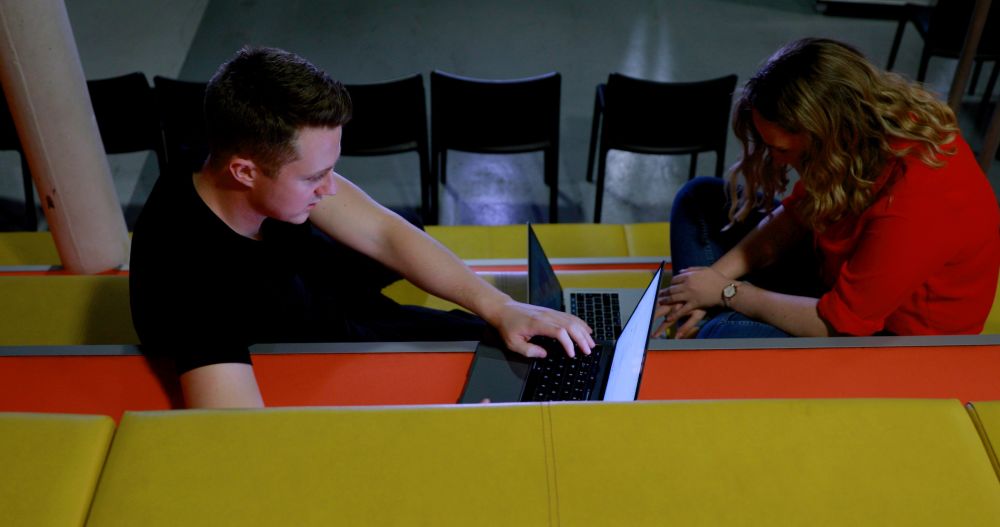
What’s been your greatest success to date?
Our greatest success to date, I think, is three-fold. One is creating a scalable events model - it's nigh on impossible if you don't go through the learning process of how to make this happen, which is, essentially, the rule for anything in life. But, events are very hard to scale - they're a logistical nightmare just for one. When you multiply that to 16 cities, 128 times a year, and you factor in the fact that only two people were doing that from a headquartered base with very little budget. it becomes a very difficult thing to do. We can scale events which are a massive social impact aspect.
The second thing we're really proud of is actually monetising this business and getting to a point where we are - if I stopped having lunch - profitable.
The third thing and, arguably, the thing I'm most proud of as a company, is the success we've seen from our community and the members within our community. If our community doesn't succeed, then we don't succeed. There are multiple members within our community that have gone on from wanting to start a business to running that business within a year. They're actually thriving, and they're employing, and they're raising money, and so they're impacting on the economy - not just locally, but nationally, and now, on a global capacity.
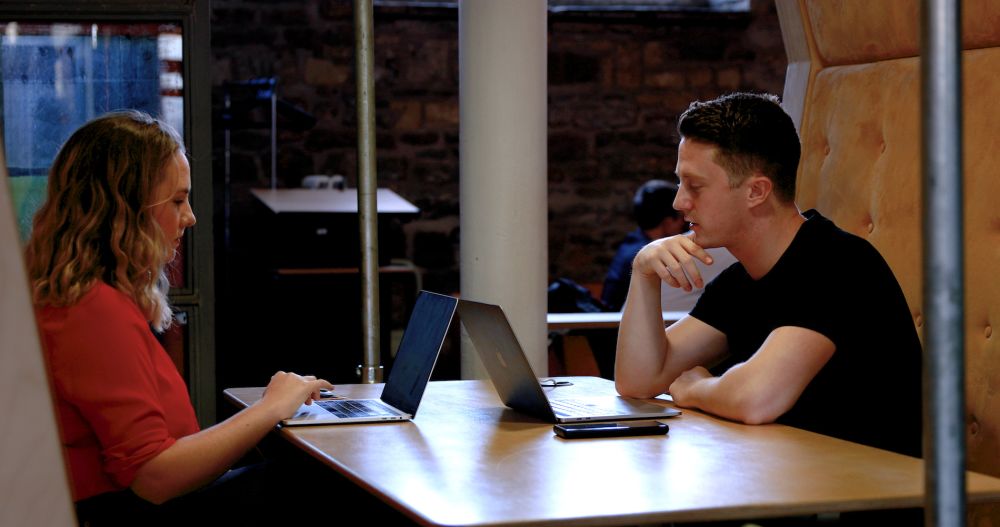
How do you see your market and business evolving over the next 3 years?
Now that we found product market fit, we're really happy with where we are and we're growing organically, which is amazing, but we're obviously very wary of resting on our laurels.
One of our core missions that's developed over the years is to disseminate business support to anyone anywhere, accessibly and, importantly, instantly. Therefore, one of the things that we'll be doing next, will allow us to deliver that support to those people as and when they need it, at the right time. And then, simply, it's to scale.
There are, according to a Global Entrepreneurship Monitor report, 100 million startups founded every single year. Now, if you factor in the fact that 90% of those are failing, it's 90 million businesses that aren't able to go to fruition.
So, our job is to try and help those people. I have no delusions of grandeur and I don't think we're going to be able to help all 90 million of those businesses, but our job is to try and help as many of those as we possibly can.
Startup Journey
What advice would you give to a startup entrepreneur taking their first steps?
The biggest piece of advice that I could give to somebody would be two things: the first thing is - just do it, ship it, do the thing, get it out there in the world! So many people seem to fit a term “wantrepreneur” (and I'm allowed to say this because I was one of these people for three years until my nan told me to stop talking and start doing it). I don't say that to be derogatory, I say that because it's my job to help people to actually start.
The second piece of advice is to just sell stuff. If they can do those things, get the business out there, sell it, operate at a profit, where possible, then they've actually got something sustainable and growable.
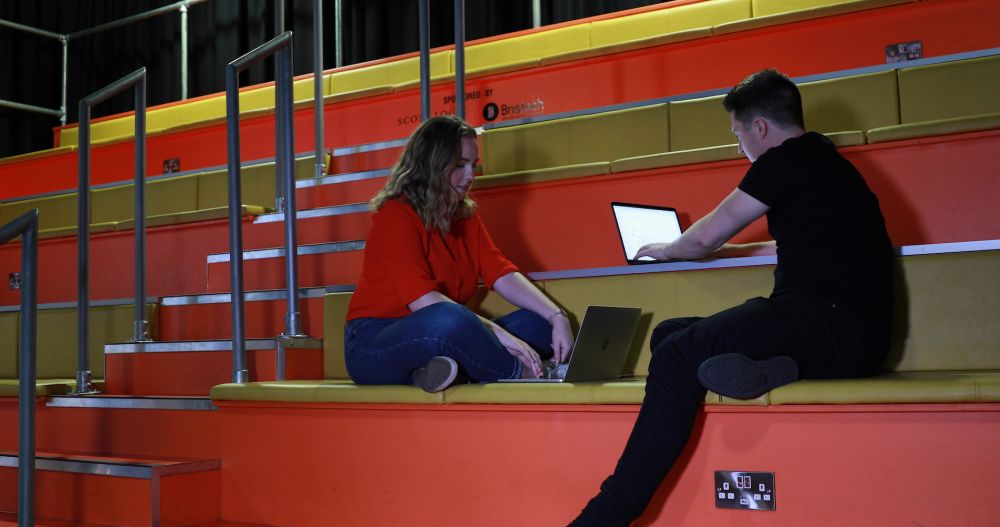
What were the unexpected roadblocks you had and how did you overcome them?
It was the fact that we had this, seemingly, really big social impact initiative. We still do and forever will, but the business started as a CIC and it meant that we were legally bound to do social impact work. We were told by all sorts of public support organisations that the work we were doing was seemingly able to raise funds from grant-making organisations.
Even those organisations themselves told us that we fit their criteria. We applied a bunch of times and didn't receive it, ever. We did everything they said, and we still got a “No”. Ironically, that was one of the best things that ever happened. I turned the company into a for-profit entity, had to buy the company off of myself and created a business model that could commercialise on its own accord.
What’s been your toughest moment? And what are the key lessons you took away from the situation?
The toughest part about starting up has been a lack of funds in getting there. It was building a lean business model that cost nothing, but was able to generate profit seemingly from nowhere - that's a really tough thing to do. And now I realise, in hindsight, that the only thing you can exchange for the money to get you there, is time.
Growing a plant without watering it is very difficult - at times that's meant that we've been very close, if not days, hours, minutes away from bankruptcy as a business. It was one of the moments where I felt like it wasn’t going to work. You simply can't see the woods through the trees.
The irony is, sometimes you need those situations, to give you the kick in the backside that you need to go and actually do something about it.
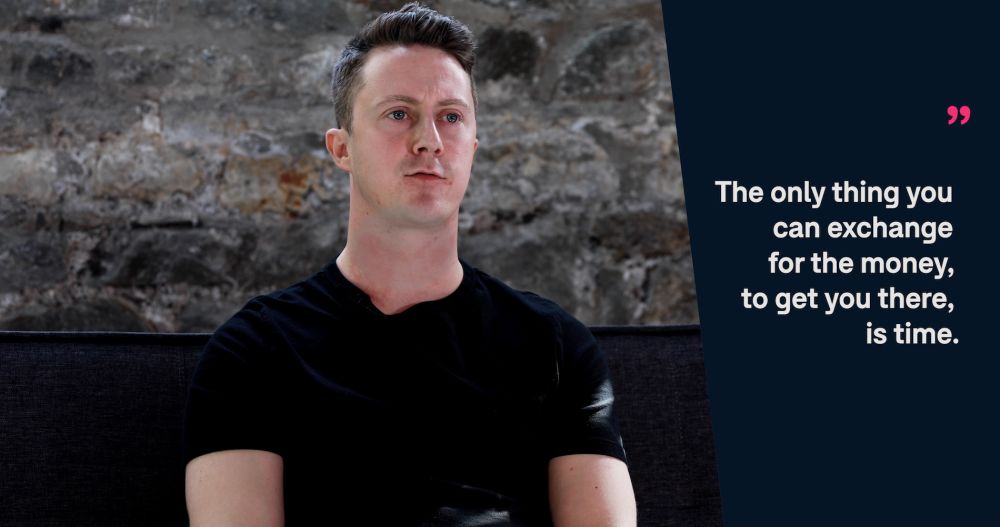
Did you bootstrap the business or have you raised external funds?
Yena itself is a bootstrapped business, completely. We started with a very kind grant from O2 of £300 as part of their social impact initiative. Everything else from there has been self-funded, and by that, I genuinely mean with time.
I self-taught everything I needed to build this business, i.e. building the website, running the events, making everything up as I went along… I still am! I think, most entrepreneurs are, anyway. If they say otherwise, they're probably making it up, ironically.
Is there anything you know now, that you wish you knew when you were starting out?
EVERYTHING! [he laughs]. Everybody's looking for something, they all want to achieve something, but it's different if you understand what people's motivations are. You can work with them to help make every interaction you have a win-win for everybody involved.
I would recommend to most people to consider what their strengths and weaknesses are, laser-focus on something, deliver that project, get it out, move on to the next thing, meanwhile making sure that you understand the motivations of the people involved in that process.
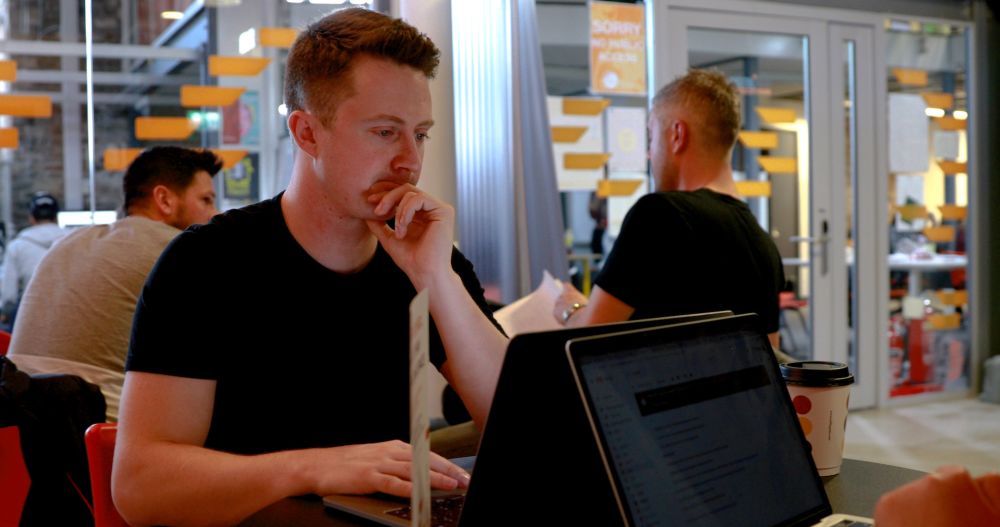
What do you believe are common mistakes that founders make?
They forget to sell. They get so caught up in everything else in the business, that they forget to sell the thing that they're trying to sell. Consequently, they see a lack of liquid cash in the business. Everybody says that cash is oxygen, and it's true - that's why it's a saying! Businesses end up dying because these founders have starved them of that oxygen.
Another thing is - there's this narrative that has been prevalent for a long time, that you need a co-founder to start and grow a business. There is an old adage - if you want to go far, go together, but if you want to go fast, go alone. And actually, with an early stage startup, sometimes fast is better than far.
The final thing people get wrong, I think, is - they raise money too quickly and don't really know what they're raising money for.
Your most cherished memory working in your startup?
Aside from the drunken periods of our first member retreat, we've been lucky enough to have some incredible speakers at our events. One of the most famous speakers that came along to one of our events, has been Cole Needham, the founder of IMDB. He really cared about what everybody wanted to do with their business, and it was amazing to see somebody that successful come along to one of our events and speak for free. It was amazing.
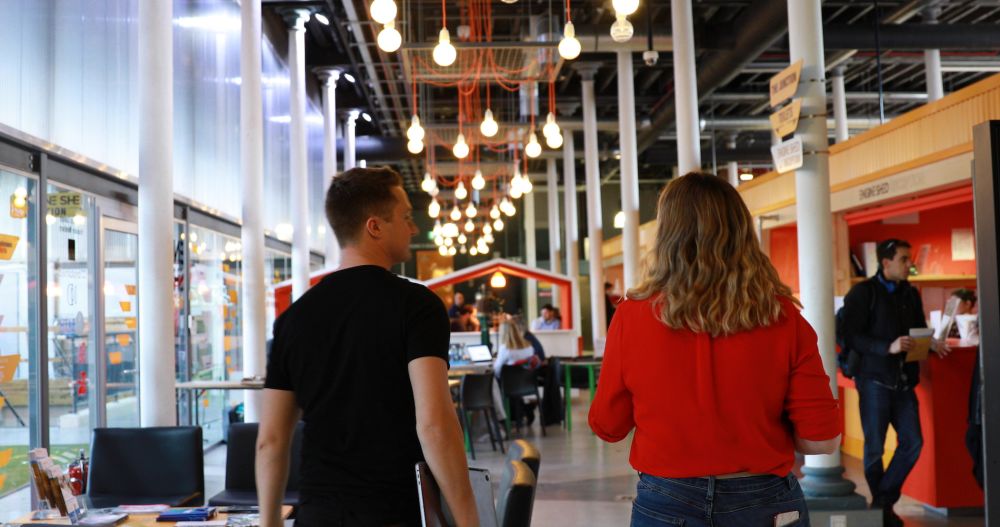
About your team
What are your company values in regards to your team?
We're a team of two right now, but we operate on some really interesting rules and, I think, we're lucky to be a small company. One of those rules is that we work on an output-only basis - it rewards efficiency.
As a tiny company, the team culture is something that's difficult to build upon. But, we’ve got some really strong core values for the future as we build the company out.
The other thing that's really important to us as a company, is mental health. We make sure that, even as a small company, it is a safe space where people can talk about any challenges they've got in a personal capacity where they need to. But (without sounding too holistic), if we can be a family and support each other, that builds in great longevity to the company.
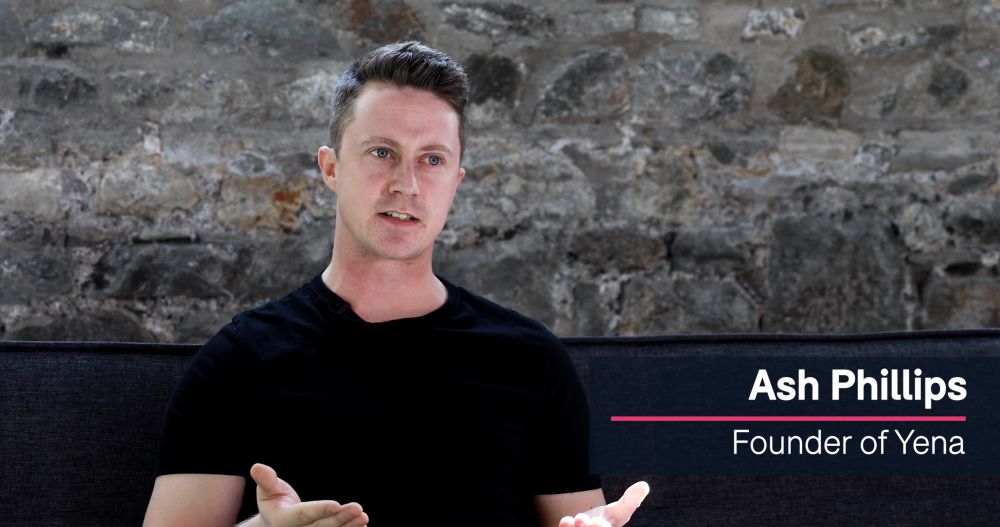
About you
How do you relax outside of work?
Relaxing outside of work has been something that historically I've found really challenging. Two to three years ago, I was a workaholic to a point where two Christmases in a row I was on my laptop sending emails.
There have been times where I've tried to balance the two, but I think, what you find happen is a blurred line between personal time versus work time. What I like to practice now are so-called purposeful uptime and purposeful downtime. I'm a film buff, a bit of a movie geek, so I like to check out the latest films. I'm a big comic book geek, so I watch all the Marvel films (probably, about 12 times over now). I think there's a common trait between stuff that I do outside of work time, and it's immersing myself in something that's very much non-work.
App you can’t live without?
Twitter is probably my favourite app and platform, generally. It's got so much power that people just don't realise! I absorb all of my news from Twitter, it’s instant and easy, but also it's entertaining.
Prior to that, it would have been Vine, but Vine died (sad times). In other life, I would have been a famous Viner - that would've been so great And I honestly think I could have fixed Vine before It ever died. Just six-second ads - how hard would that have been?
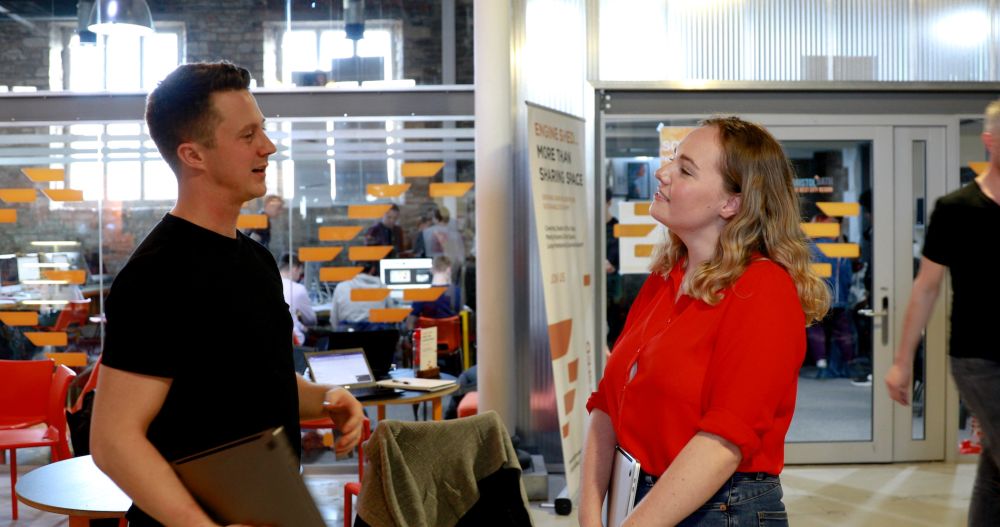
Who inspires you, personally and professionally?
Ooh, that's emotional! I’ll have to say, and I genuinely mean this: every single person within the Yena community inspires me. They inspire me every single day because they're changing the world and it's given me rose-tinted glasses.
I find it hard to find people that inspire me personally because my life is my work. And I don't mean that in a negative way, it's that old adage of finding something you love and never having to work a day in your life. Yena is what I would do if money wasn't an object. So, the people that inspire me personally, are the people that inspire me professionally - they're all fantastic individuals.
Related stories
This content has been created for general information purposes and should not be taken as formal advice. Read our full disclaimer.



